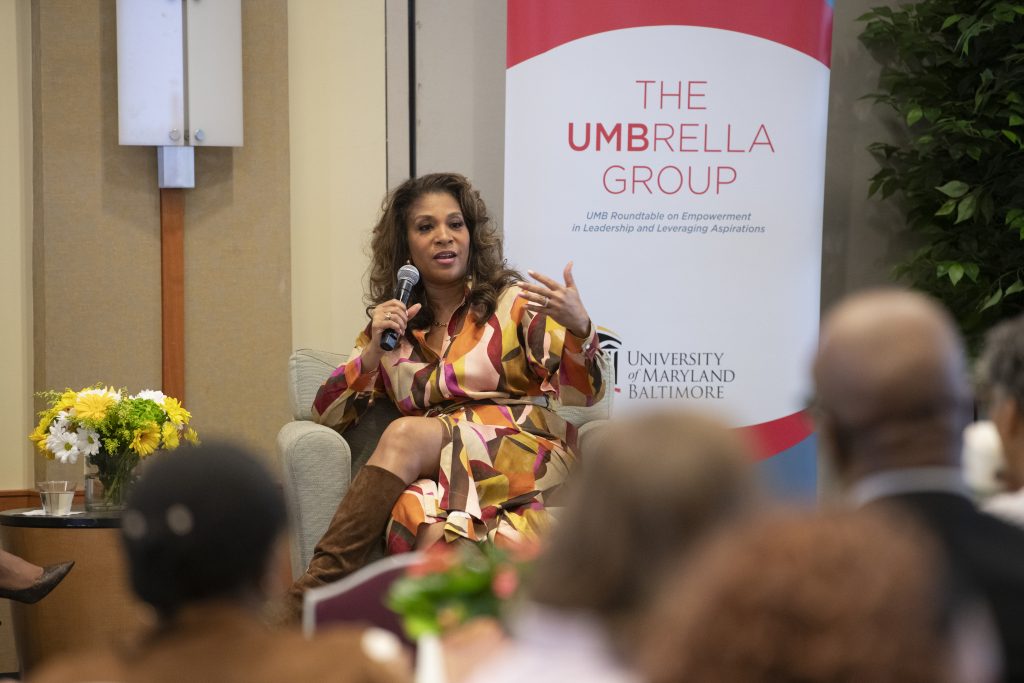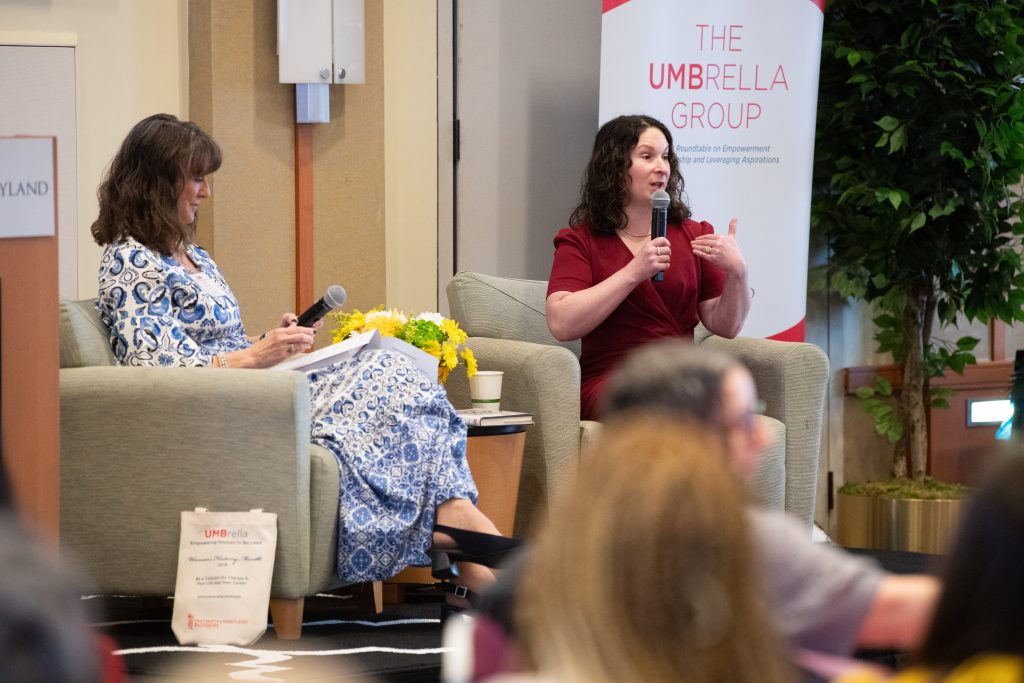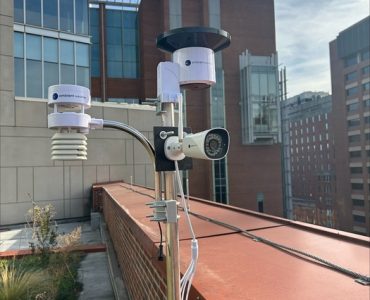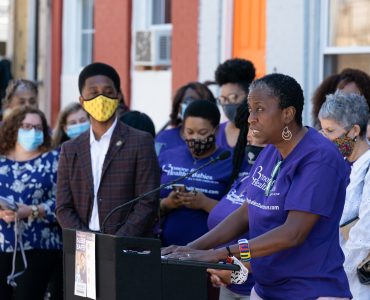
The University of Maryland, Baltimore (UMB) featured two keynote speakers — including the first lady of Maryland — for its first full in-person UMBrella Women’s History Month Symposium since the COVID-19 pandemic. During the March 6 event, Maryland First Lady Dawn Flythe Moore talked about a range of topics, including her life of service before her husband, Wes Moore, became governor, during a conversation with Tisha Edwards, JD ’01, MSW ’00, Maryland’s secretary of appointments. During the afternoon session, Shanna Hocking, founder/CEO, Hocking Leadership, LLC, participated in a fireside chat with Jennifer Litchman, MA, senior vice president for external relations, UMB, and founder and chair, UMBrella, and read from her book, “One Bold Move a Day.”
Here are three key takeaways:
Fight for what you believe in.
When Wes Moore was running for governor, he led none of the polls in a field of nine candidates during the Democratic primary. Edwards said to Dawn Moore, “What I learned in this last leg of this journey with you was courage. Because there were moments where we were afraid. We put everything on the line. We were committed.”
Dawn Moore, who had previously worked on campaigns for former Gov. Martin O’Malley, JD ’88, and Kathleen Kennedy Townsend and served as chief of staff to Lt. Gov. Anthony Brown, said she comes from a family that believes in fighting for your rights.
“You have to fight for what you believe in, so this was my wheelhouse,” she said. “I knew I had something to contribute, and I knew what was required was hard work. And I would say to Wes every day, ‘Nothing beats hard work’ and that we were going to show up in every single part of this state.”
She described campaigning from “Western Maryland to West Baltimore.”
“We had a whole family of troops out there, whether it was my mother-in-law or his aunts. It started with a very small group of believers who could be the best ambassadors for him and who would go throughout the state in places he couldn’t go to really evangelize on his behalf,” Moore said. “And then I always would say, ‘No one is going to outwork my husband.’ And we showed up all the time.”
Anyone can suffer from imposter syndrome.
Edwards described Dawn Moore as “a champion of all people” and asked her how she leads with strength and vulnerability.
Moore talked about how all women have dealt with imposter syndrome at one time or another.
“We’ve probably all experienced that in some ways, and this is a very interesting journey because I’m used to being on the other side, being a staff person. I’m used to being an advisor, and I do still give advice,” she said. “But sometimes I sit at the table and think everybody’s looking at me. And then you realize — my husband says this — you are where you are supposed to be and you are in the room because that’s where you belong. This is not some social experiment. This is not an act of benevolence, right? Or that someone wanted to sprinkle diversity into a room. This is because you really have something to offer.”
Moore has been focused on working on children’s mental health as well as military spouses and their families. A former military spouse herself, she testified before the General Assembly about how Maryland needs to be a leader in hiring military spouses, becoming the first first lady to testify before the General Assembly in about 20 years.
“Twenty years ago, I would have been writing that testimony, I would not have been giving that testimony,” she said. “You may say, ‘Well, I’ve been the behind-the-scenes person, and that’s where I’m comfortable and that’s where I should stay.’ But then there comes that moment where you have to come from behind the scenes and step out in front, and your voice is necessary. Your voice is needed. And your work is needed. And that’s where I’ve come to realize that my voice is needed.”
She said one of her favorite lines is from the movie “A Few Good Men” when Jack Nicholson’s character says, “You want me on that wall. You need me on that wall.”
“And that’s where we are as women — they need us,” she said.
Everyone has a superpower.

Hocking revealed that she was rejected by 30 literary agents before getting her book published. Litchman asked her what keeps her going when faced with such challenges.
“Not a single thing was easy. And I like talking about what those challenges are, because it makes it real that every one of us is facing rejection and heartache and barriers, some that are seen and some that are unseen, in our goals,” Hocking said.
“The thing about a superpower — and everyone has a superpower — it is the thing that makes you uniquely you. It is your strength. It comes so naturally to you.”
She said her superpowers are resilience and determination.
“You might not even know what your superpower is until you do a little deeper reflection,” she said. “I just will not let other people deter me from reaching my goals. I will find another way to do this because in my heart, I know that I am meant for something more.”



